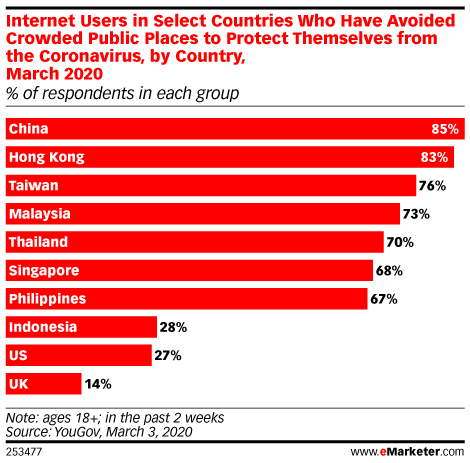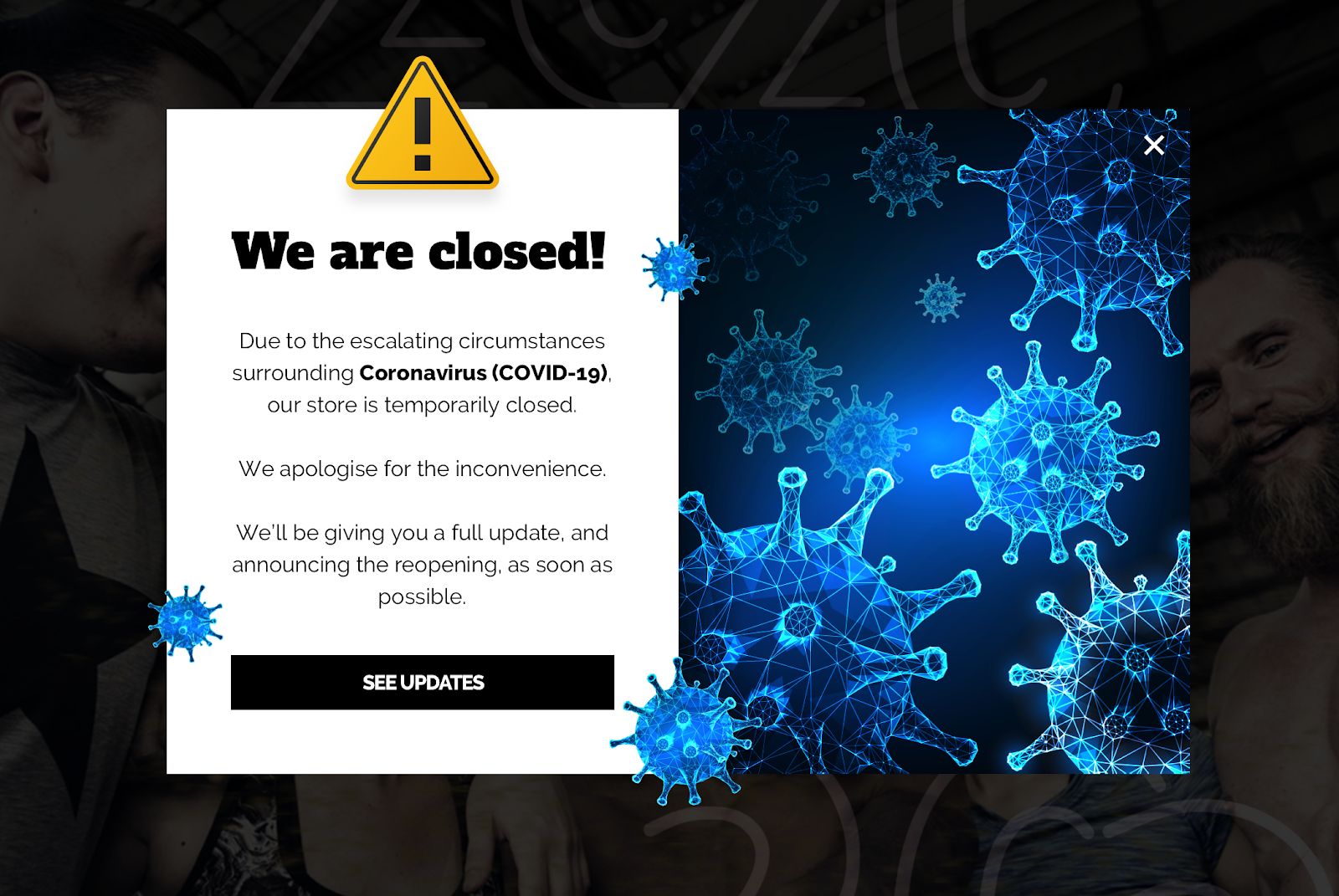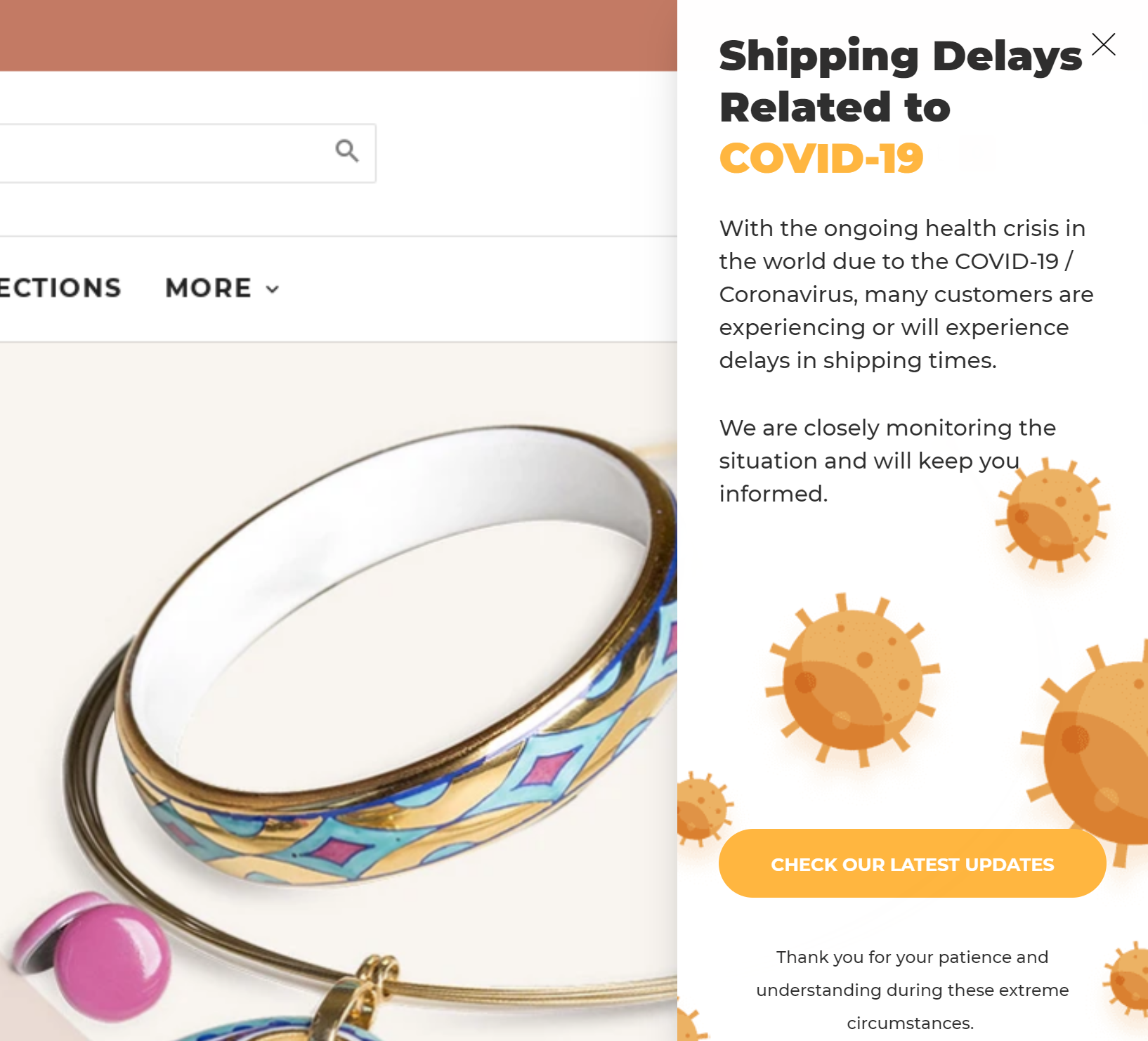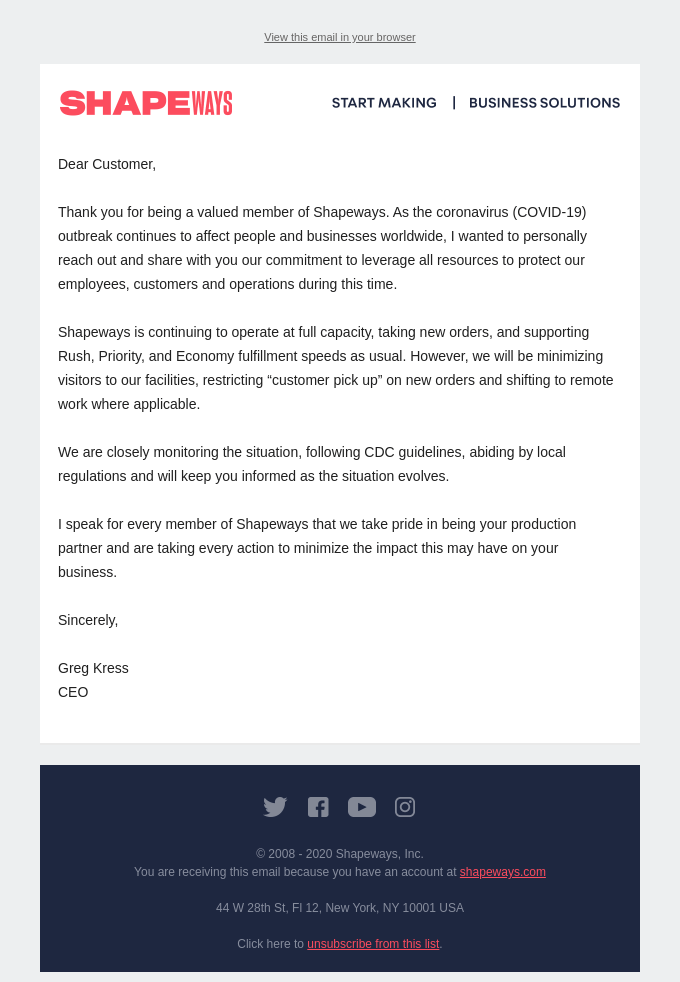The whole world is facing a severe health crisis, as the COVID-19 (coronavirus) spreads globally.
Workers in some infected countries have been asked to work from home, cities have been placed under lockdown and schools have been shut down. People in those countries have also begun avoiding public, crowded places.
You’re probably wondering how all these changes affect online sales, how online brands can continue their operations, and how you should prepare.
In today’s article, we’re going to cover them all!
While the coronavirus has a critical impact on global supply chains, multiple sources say that it may boost ecommerce revenue as consumers stay away from physical stores.
According to a new survey from YouGov, 85% of internet users in China and 83% of those in Hong Kong said they avoided crowded public places in the past two weeks. Just more than a quarter (27%) in the US and 14% in the UK said the same.

Source: eMarketer
Since consumers are trying to avoid shopping centers and grocery stores, we can expect growth in online shopping.
In fact, Contentsquare analyzed more than 1,400 websites, and they found that over the last two weeks, premium online grocery purchases have grown by 20%, and healthcare product purchases have grown by 27%.
While we can see a boost in some industries, unfortunately, not every industry is that lucky. Travel, hotel, and tourism bookings are down, and outdoor items purchases (e.g. sports equipment) have also dramatically decreased in the last two weeks.
To help you out, we created a list of tips about how to handle the health crisis in the ecommerce industry. Let’s see!
How to cope with the coronavirus in the ecommerce industry
1. Inform your visitors
Every consumer engaging with you right now is thinking about the coronavirus in some ways. Don’t try to avoid the elephant in the room.
According to Multichannelmerchant, “Amazon, UPS, and FedEx have all been announcing delivery delays caused by spikes in online ordering related to coronavirus concerns.”
If it affects your delivery in any way, inform your visitors. If not, you should still make a note, so they are not worried about it.
OptiMonk always tries to help ecommerce stores, and we made an attempt in this situation as well. With our pre-made templates that are available even in the Free plan, you can quickly inform your customers.
Here’s how our notification nanobar looks like:

We created a template for those of you who manufacture or supply your goods from China (or any other countries that are hugely affected by the COVID-19) and had to close your store temporarily. See below.

2. Be ready to act quickly
There are constant changes to restrictions, and you need to be prepared that it might affect your deliveries.
Be ready to take action fast if needed, and stay on top of activities within the ecommerce industry. Also, you must take stock of your online sales capability and consult with your logistic partners. Don’t forget to inform your customers as well about the changes.
Here’s our notification sidemessage template (which is also available in your free OptiMonk account). With this, you can inform customers easily.

3. Target new audiences
In a recent article, eMarketer quoted their analyst, Mark Dolliver: “Since older individuals are the ones for whom the virus has been most fatal, they may be especially likely to alter their behavior. This could mean more adoption of ecommerce, an area where they’ve been laggards. People whose attitude has been ‘I’d rather die than buy online’ may rethink this if they feel going to crowded, germy stores truly could kill them.”
Members of Generation X don’t have high levels of trust for online businesses, but during this time, they might change behavior. So, it would be best if you considered targeting them as well in your ads.
4. Send an email to your customers
It’s worth sending informative emails to your customers where you give updates about your store, share what actions you took, and provide some tips and suggestions.
For example, you can advise customers to:
- Order online instead of going to your offline store
- Pre-order their usual products now, while you have no delivery problems
- Pay online
- And so on
You can send a simple notification email as well to inform your customers that you will continue to operate at full capacity, as Shapeways did in the example below.

5. Relevant offers and incentives
Ecommerce sites always have some promotion because it is a great way to acquire new customers and grow revenue. For instance, you can offer free shipping, percentage-based discounts, a spring sale or end-of-the-season sale, and so on.
It would be best if you could come up with some new ideas that are more relevant during this time.
For example, you can create coronavirus-related articles for your blog. If you have a food blog with recipes, you can share recipes for quarantine that last a long time. If you sell disinfectant gels in your store, it could be another great, relevant offer to give away a smaller jar of hand sanitizer for every purchase made.
+1 What if you don’t have an ecommerce website?
Firepush wrote a guide on how you can set up your own online store in no time at all, using Shopify, one of the best platforms for ecommerce. Go ahead and check it out!
Conclusion
We know that times are hard and we all struggle, but being in the ecommerce industry is probably the best right now. In China, offline sales have dropped 47% this year, but online sales only dropped 3%. It should give us hope.
Don’t worry, prepare for every situation, and your business will be fine. I hope my tips could help you get the most out of this situation.
Stay safe,
Nicole
P.S. What do you think about the current situation? Do you see any impact on your ecommerce store? Let us know in the comments!












